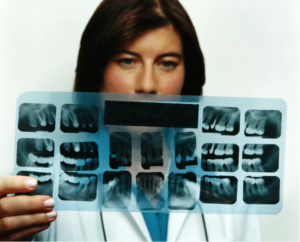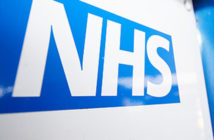Maintaining good oral hygiene is one of the best decisions you can make for yourself and children.
Good oral health involves daily brushing, flossing, and rinsing, regular dental checkups, and getting your teeth professionally cleaned. You’ll appreciate the time and resources, plugged into achieving healthy teeth and a brilliant smile. You’ll likely keep all of your teeth as you age, unlike others who lose one or more teeth from practicing poor oral hygiene.
In fact, adults ages 20 to 64 have an average of 24 teeth remaining because of poor oral hygiene and gum disease. This is according to the National Institute of Dental and Craniofacial Research. If this information isn’t inspiring enough, these top 10 reasons to visit your dentist may motivate you to keep your dentist’s phone number on speed dial.
1. Your tooth or gum hurts
Tooth pain or gum pain is definitely a top reason to get into the dentist chair. Unless you just got hit in the mouth from falling or bumping into someone or something, tooth or gum pain means there is an underlying problem. Toothaches are usually linked to tooth decay, gum disease, an impacted tooth, or a dental abscess. Our dentist, Dr. Nathan Dustin from Columbia River Dentistry says that if you have tooth pain, especially when you eat or drink, you may have a cavity that needs to be treated.
To keep you from guessing what’s causing the pain and to prevent dental complications, you should see your dentist right away. Your dentist will evaluate you to determine the underlying cause of the problem. Treatment such as painkillers, antibiotics, dental fillings, or a root canal may be recommended depending on the diagnosis. Treatment will help to stop the pain and improve teeth and gum health.
2. Built-up plaque and tartar
Plaque is that sticky, off-white substance that forms a layer or a thin film over the tooth surface. The creamy substance generates due to bacterial activity on food and sugar deposited in the mouth or on the teeth. Daily brushing and flossing are necessary to remove food particles trapped on and between the teeth and prevent plaque buildup. However, tiny pieces of food may remain in hard-to-reach places such as on or between the back teeth and the pits and fissures.
Additionally, eating lots of sugary foods will increase the amount of plaque. This happens because bacteria in the mouth feast on sugar and release an acid that causes this sticky substance to build up very quickly. Excess plaque in the mouth will eventually cause bad breath and hardening of the plaque into tartar. No amount of brushing or flossing can remove this hard substance deposited on the tooth enamel or at the gum line. However, your dentist has special tools designed to gently scrape away plaque and tartar stuck, especially in the spaces between the teeth and at the back of your mouth.
3. Treat or prevent bleeding gums
Visiting your dentist can help to prevent or stop your gum from bleeding. The gums, or gingivae, is made up of soft tissue that helps to hold the tooth in place by forming a snug seal around each tooth. This pinkish protective tissue is fibrous and filled with tiny blood vessels. Failing to properly care for the teeth and gum can cause bacteria to infect the gumline or the tissue beneath the tooth. A condition called gingivitis may then develop and lead to bleeding gums.
You may notice your gum bleeds when you brush or floss. Sometimes even gently pressing the gum can cause blood to ooze. This does not normally occur in people with healthy gum. During your checkup, your dentist will examine your teeth, gum, and mouth thoroughly to look for signs of gingivitis. If this condition is present, your dentist will perform a professional clean to remove plaque, tartar, and bacteria-filled substances from the gum and teeth. This procedure is called scaling or tooth planing. It helps to stop inflammation and discourage further buildup of bacteria, plaque, and tartar so the gum can breathe and heal.
4. Prevent or treat cavities
Seeing your dentist for routine examinations and cleaning goes a long way in helping to prevent cavities or dental caries. A cavity is a tiny hole in the tooth’s enamel (outer layer of the tooth) and represents permanent damage to the teeth. Cavities form gradually and begin when built-up plaque remains on the teeth or at the gumline for a long period of time. Bacteria in the plaque quickly convert sugar from foods into acid. The acid causes demineralization or an eating away of the enamel. This weakens the tooth’s structure, then holes or caries form.
Eating too much sugary or starchy foods increases the chance of dental caries. Having dry mouth is also a risk factor since there isn’t enough saliva to naturally wash away food particles and plaque from the teeth. It is until symptoms such as tooth sensitivity or tooth pain occur that a person may realize they have a cavity. Even if bacteria already poked a hole or two in the tooth, your dentist can clean and fill the holes with dental fillings to stop further decay. Remember that untreated cavities can lead to tooth decay, periodontitis, and tooth loss.
5. Spots or sores appear in your mouth
Some people are more likely to get spots and sores in their mouth. Therefore, they should see their dentist regularly to help boost oral hygiene and reduce the occurrence of this problem. Common spots are white patches called leukoplakia, candida (oral thrush), canker sores, and cold sores. If oral thrush or sores develop and last more than a week, this could indicate an underlying problem such as a bacterial, viral, or fungal infection, a disease, or a disorder.
Injury to the gum or soft tissue lining the inside of the cheek can sometimes lead to a whitish patch or sore. The injury may occur from irritation caused by a cheek bite, your toothbrush hitting the gum or inner cheek, dental appliances such as braces, or dentures. Your dentists will examine your mouth and may run other tests to determine the cause of the spots or sores. Dental treatments, such as cleaning, can get rid of bacteria causing the infection. However, medical treatment may be necessary to treat fungus, virus, or underlying medical conditions causing spots or sores.
6. Gum disease or periodontitis
Gum disease usually develops from advanced or untreated gingivitis or inflammation of the gum tissue. Once gingivitis persists, the bacteria under the gumline will borrow deeper beneath the gum and eventually infect the periodontal or gum pockets. These are the soft gum tissue that envelops the tooth to help keep it stable. Infection of the gum pockets may loosen the tissue and allow more bacteria beneath the tooth. The bacterial infection can turn into a dental abscess or continue to damage the pulp and surrounding bone. A loose tooth may result.
However, treating gum disease early can prevent all of this. If the tooth is badly damaged, you may need a root canal to get rid of the disease and help save the tooth. An extraction may be necessary in severe cases of tooth decay or loose tooth. Bear in mind that missing teeth not only affect your smile and self-confidence, but it can also cause problems tearing, chewing, and swallowing foods. Tooth replacement with dental implants, dentures, or bridges are possible. However, these are expensive procedures that can be avoided by simply keeping your dental appointments.
7. Prevent bad habits from interfering with oral health
You may not know this, but various bad lifestyle habits can have a negative impact on your dental and overall health. These habits include not brushing at least twice a day as recommended by the American Dental Association (ADA), refusing to floss, or failing to rinse your mouth with a fluoride-based mouthwash. Additionally, excessively eating sugary foods, drinking coffee, biting your nails, brushing too hard, chewing tobacco, cigarette smoking, and vaping are all unhealthy lifestyle habits that can harm your teeth and gums.
Smoking cigarettes is also a leading cause of lung cancer and lung cancer-related deaths. Oral damage caused by these bad habits may be present even if you don’t notice them. When you see your dentist, he or she will check for signs of problems and treat you if necessary. You may also get advice on changes you can make to prevent recurring issues with the teeth and gum.
8. Oral cancer screening
More than 30,000 Americans are diagnosed with oral cancer every year. This is according to The National Institutes of Health (NIH). Oral cancer is a serious and life-threatening disease that can sneak up anyone. This is because the signs and symptoms are not usually obvious to you even though your dentist is trained to identify them. During your regular checkups or a separate appointment for oral cancer screening, your dentist will perform a thorough oral examination and X-ray.
An X-ray is an imaging test that allows the dentist to detect bone decay, chipped tooth, oral cysts, or cancerous tumors that are not visible with the naked eye. Once detected early, oral cancer can be successfully treated to prevent the disease from progressing and causing serious or fatal health complications. The screening procedure is painless and takes just a few minutes. That’s all the time it takes, at least twice a year, to keep this disease away.
9. You’re pregnant!
Pregnancy can make certain dental problems worse or create new dental issues. Blame it on those hormone imbalances that throw some of your body functions off course. Studies also show that poor dental hygiene is associated with premature delivery, preeclampsia, and gestational diabetes. Furthermore, pregnancy hormones can hasten tooth decay and increase the risk of new cavities, gingivitis, and pregnancy tumors. And yes, contrary to what you may have heard, it is safe to have your dental checkups while you’re pregnant.
In fact, The American Dental Association and the American Congress of Obstetricians and Gynecologists encourage pregnant women to continue protecting your oral health. So while you’re busy picking out tiny pink or blue outfits, be sure to schedule an appointment with your dentist preferably before the end of your second trimester. If you need treatment, your dentist will know what medications are safe for you. X-rays are also safe during pregnancy. Your X-ray technician will cover your belly with a lead apron to protect you and your little one. An anesthetic may also be safely administered locally if needed.
10. It’s time for your next dental checkup
The American Dental Association recommends that adults and children see their dentist for routine checkups at least twice a year. However, according to Mouth Healthy, 100 million Americans fail to have a dental checkup each year. Therefore, you’re due back in the dentist chair if it has been at least 6 months since your last visit.
You don’t need to have any tooth pain or oral problems such as bleeding gums to carry through with your visit. Just consider it mandatory in order to prevent or treat oral problems and maintain healthy teeth and a radiant smile. In addition to routine oral checks, your dentist will examine your neck, jaw, and lymph nodes for swelling, lumps, or other abnormal signs.
Your routine dental checkups are worth it!
In addition to these top reasons to visit your dentist, practicing good oral hygiene and getting regular dental checkups is also good for your overall health. Oral bacterial infections, periodontitis, and dental abscesses have been linked to diseases such as heart disease, diabetes, and HIV. People with diabetes need to see the dentist more often than others as a rise in blood sugar increases the risk of gum disease. Individuals with HIV have a weakened immune system that makes them more prone to gum disease and tooth decay. So don’t compromise your pearly whites, your smile, or your overall oral and general health. Just call your dentist today to schedule your next checkup!






3 Comments
Thank you for the article! Last week I started having discomfort in my teeth and of course I started searching the Internet for a solution and found your article, while reading the pain increased, I admit I haven’t been to the doctor for about two or three years, since it was almost night I was lucky to find an emergency dentist near me where I immediately went. It turned out that I have a problem not with one tooth but with four. I am still in the process of treatment, but after the pain that I experienced, I will now constantly and carefully take care of my teeth, which I advise everyone.
As the article rightly points out, maintaining good oral hygiene is critical to overall health and well-being. It is important to instill good dental habits in children from an early age to prevent future dental problems. Regular checkups at this clinic can also help identify any potential problems early and prevent them from becoming more serious problems. Taking care of your teeth and gums is an important part of a healthy lifestyle.
I would like to share my opinion after reading an article about the importance of visiting a dental clinic for both treatment and prevention of teeth, especially in the context of an article that discusses the main reasons for visiting a dentist. Regular dental clinic visits are an essential part of maintaining oral health. Regardless of whether you need treatment or prevention, the dental clinic is a reliable and professional place where you can get qualified help. When it comes to dental treatment, a dental clinic provides access to the various specialists and procedures needed to address dental and gum problems. From caries and root canals to prosthetics and orthodontics, the doctors at this dental clinic have the experience and knowledge to solve a variety of dental problems.